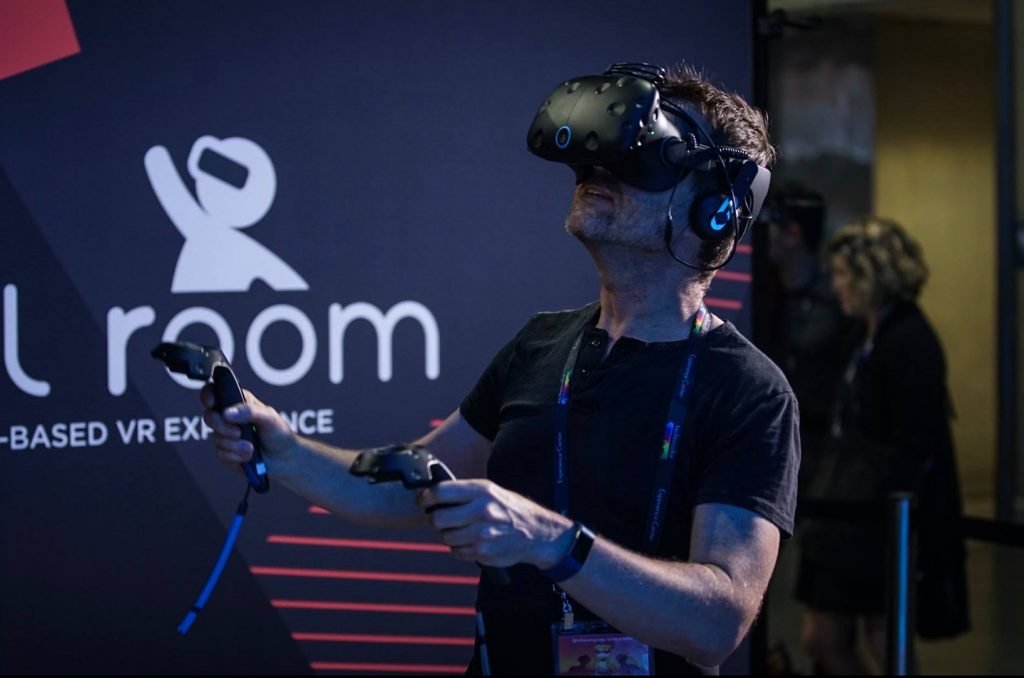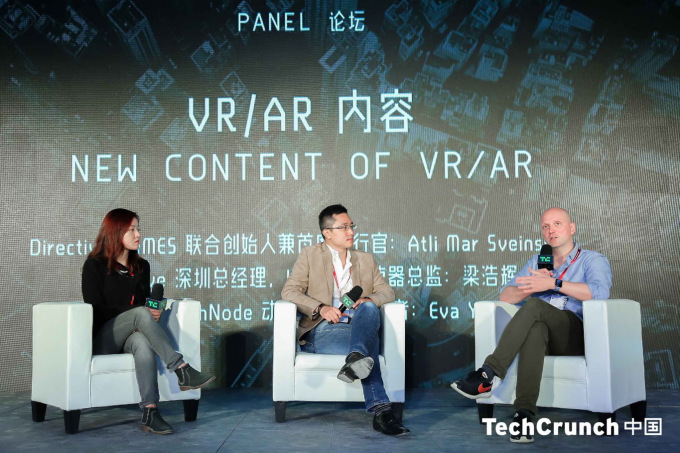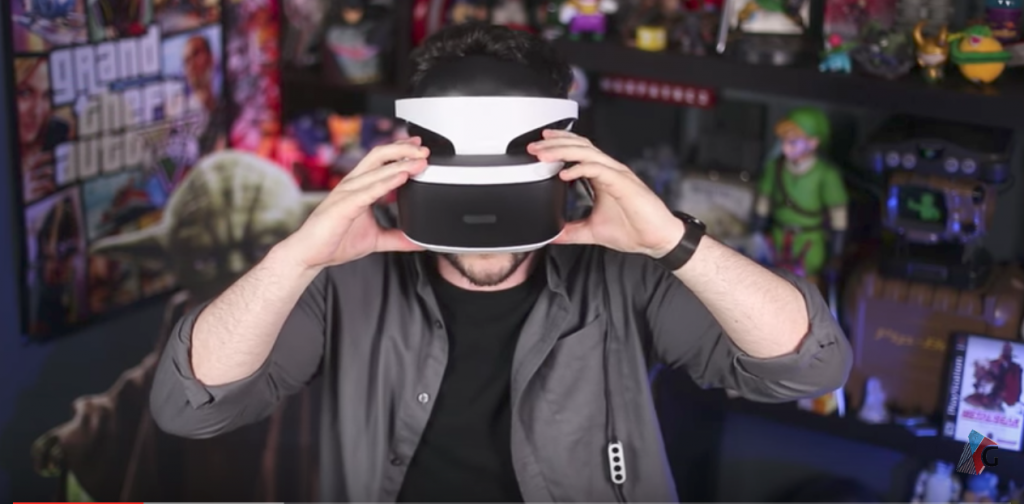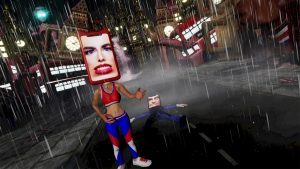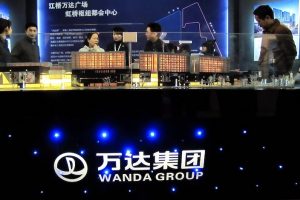Subtle changes show that despite slowing media coverage, people are becoming more familiar with the concept of VR thanks to more affordable devices, better content, and the popularity of offline VR arcades.
“When I tried to explain my VR startup to outsiders of the industry, either friends or clients, more than one decade ago, their first reaction would usually be ‘What’s that?’ But now, on hearing that I’m engaged in VR business, people would say ‘Wow, that’s cool,’ only that the exclamation is often followed by a second award question of ‘But what is it exactly?’,” Meng Weiqi, CEO of VR firm Beijing Longteck, said about the change of attitude towards the emerging technology at Vive New Ecosystem Conference 2018 held last week.
Compared with two years ago, the buzz surrounding VR has gone quiet, raising concerns that the industry is dying. But subtle changes show that despite slowing media coverage, people are becoming more familiar with the concept of VR thanks to more affordable devices, better content, and the popularity of offline VR arcades.
A survey conducted by HTC Vive shows that the familiarity with VR in China increased from 35% to 51% over the last year, up 150%. Yet, there is still a long way to go to make it as popular as smartphone, a situation that’s depicted in Steven Spielberg’s blockbuster movie Ready Player One.
Some may still hold the view that VR is just for video game fans, but they may have already benefited from VR —through the business adoption. Here are five of the most potent business-focused applications of VR that you can experience today.
Online education – HTC VIVEDU
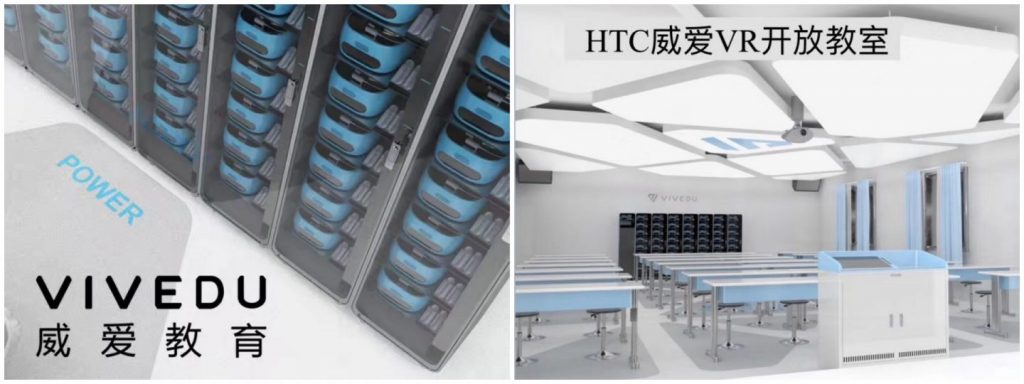
Image credit: HTC VIVEDU
Immersive education VR is transforming the way educational content is delivered. As the online education arm of HTC Vive, VIVEDU has developed a VR education solution, allowing students to simultaneously use VIVE for learning in an innovative classroom setting.
“Our solution includes an interactive and open classroom, a set of connecting devices and massive amount of online education contents,” introduced Lv Yun, SVP of HTC VIVEDU. In addition, the company offers a comprehensive solution for charging and sterilizing VR headsets, he added.
By combining VR experience with traditional education, the students not only can enjoy face-to-face interaction with the teachers but visualize concepts that were confined to the pictures in a textbook.
Lv introduced that over one hundred VR curriculums covering 13 subjects for college and vocational education and K12 were created and stored on the cloud. What’s more, lots of these curriculums are created by teachers using an easy-to-use editing tool offered by the company.
Entertainment – Leke VR

Image credit: Leke VR
While hard-core VR fans would want to buy a device and play at home, more people choose to try VR at stores, arcades or theme parks. Beijing-based Leke VR is engaged in product development, content customization, design planning and customer operation training, which provides VR experience store operators with a one-stop solution.
It offers VR devices, including VR helmets, handheld controllers and treadmills for VR stores. The devices are integrated with its self-developed operating system VRLe, which has more than 400 games, serving more than 3,500 VR arcades and 3 million terminal consumers, according to the company.
Leke VR’s products have been exported to dozens of regions including the United States, Japan, South Korea, Britain and Australia, according to the company.
“With the maturity of VR technology and consistent reduction of manufacturing costs, we expect wide applications of VR in large-scale audience engagement solutions for entertainment. One thing to note is that product stability is of vital importance in application scenarios, like offline experience centers and VR stores,” said He Wenyi, CEO of Leke VR.
Jurisdiction – Beijing Source Technology

Image credit: SupChina
In addition to entertainment, VR technology can be used for something very serious in nature – to advance the practice of law. The VR solution of Beijing Source technology is adopted at a courtroom in Beijing, helping lawyers and judges to get a better idea of how an alleged offense took place. This was also the first time that Beijing’s courts had used such technology.
“After the hearing, where the crime scene was depicted vividly in the VR world, the defendant confessed his offense immediately,” said Wang Zenan, CEO of Beijing Source.
The company also engaged in the development of psychological evaluation system for juveniles, helping them to recover from school or family violence traumas.
“We hope VR will play a greater role in the judicial system by integrating it into every link from police investigation, judicial review, lawsuit filing to the court hearing so that we can get closer to the truth by leveraging comprehensive data,” said Wang.
Public safety training – Tianjin Doopaa
 Image credit: TechNode/Emma Lee
Image credit: TechNode/Emma Lee
Tianjin Doopaa offers comprehensive VR solution that can simulate emergency situations, providing users with information on what to do in a disaster.
The company’s VR experience platform, dubbed VR911, now has over 30 simulation scenarios include earthquake, fire disaster, kitchen emergency, drunk driving and more.
“We have entered partnerships with China’s top authorities like China Meteorological Administration and China Earthquake Administration to improve our VR experience. Our solution is applied in 23 provinces in China,” said Yu Lei, CEO of Doopaa.
Industrial engineering and design – Beijing Longtek

Image credit: Longtek
Founded in 2003, Beijing Longtek provides professional virtual reality systems and solutions among industries of aerospace and aviation, high-speed rail, transportation, research academies and institutes. Its MakeReal3D VSP solution focuses on industrial applications such as Digital Mock-Up (DMU), virtual disassembly and assembly, virtual maintenance and human factors analysis.
“I’ve been in the VR industry for more than a decade now. In the past, 3D demonstrations in engineering manufacturing are costly and are only accessible for big clients and company executives. The popularity of VR helmets made the experience available to every engineer and this change could greatly improve the engineering and design efficiency,” Meng Weiqi, CEO of Longtek.
–This article originally appeared on TechNode.


